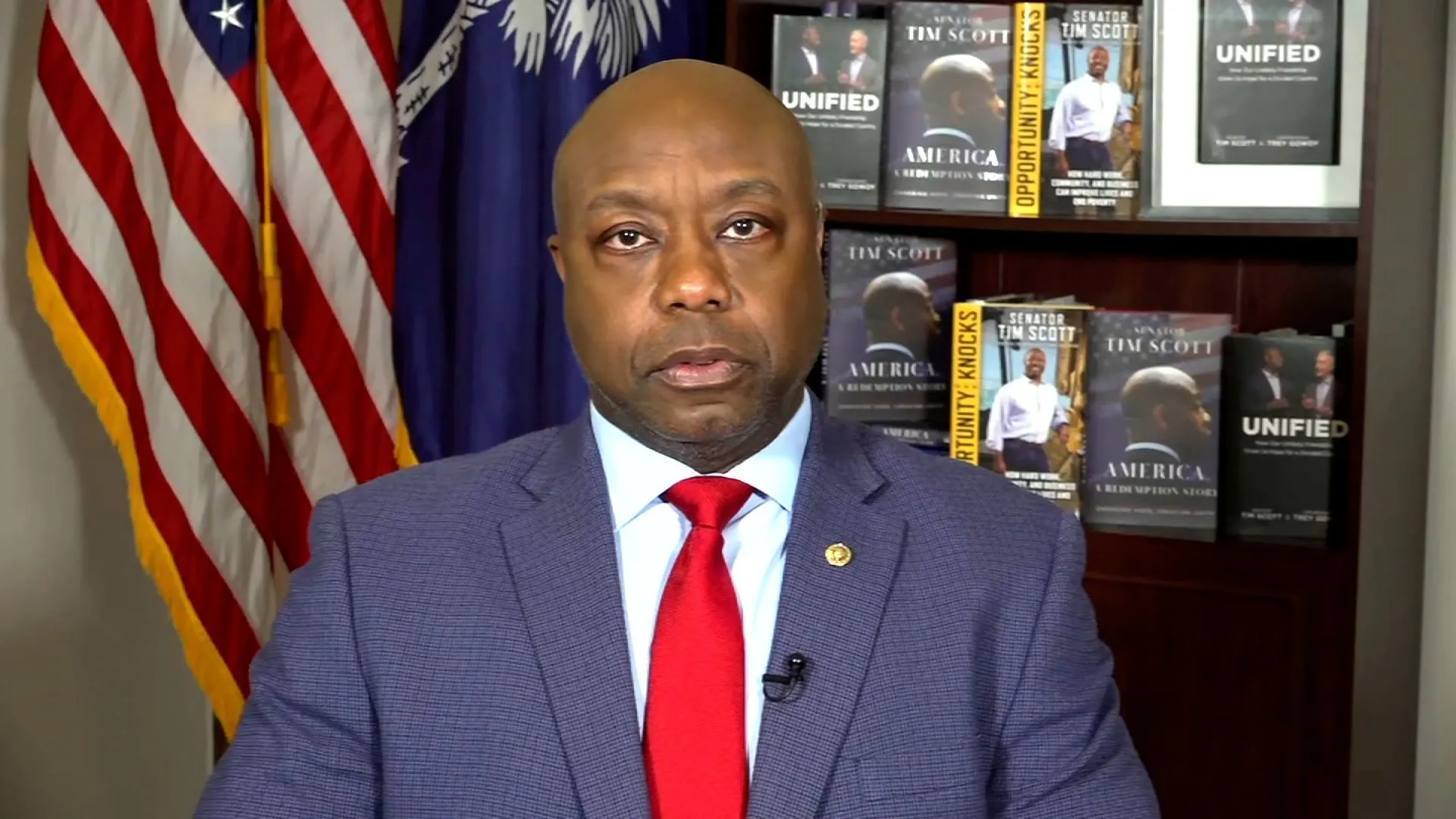The US Senate Banking Committee is charting a new course under the leadership of Republican Senator Tim Scott, with digital asset regulation emerging as a key legislative priority. Announced on Jan. 15, Scott outlined plans to develop a clear and tailored framework for cryptocurrencies and stablecoins, addressing longstanding concerns about regulatory ambiguity in the sector. This shift in focus comes amid broader efforts to promote financial inclusion, economic security, and innovation in the United States. As the committee transitions from its previous leadership under Democrat Sherrod Brown, industry stakeholders are anticipating a recalibrated approach that balances innovation with oversight.
US Senate Banking Committee to Prioritize Digital Asset Regulation Under Senator Tim Scott’s Leadership
The United States Senate Banking Committee is signaling a shift in priorities with Republican Senator Tim Scott of South Carolina at its helm. In a Jan. 15 announcement, Scott, recently elected as the committee’s chair for the 119th Congress, emphasized that developing a comprehensive regulatory framework for digital assets would be a key focus for the legislative body. This move marks a critical juncture for the cryptocurrency industry, which has long grappled with regulatory uncertainty in the United States.
Outlining the committee’s agenda, Senator Scott highlighted the importance of crafting policies aimed at financial inclusion and economic opportunity. Alongside addressing issues like affordable housing and economic national security, digital assets were mentioned as a significant area of focus.
“Under Chair Gensler, the SEC refused to provide clarity to the cryptocurrency industry, which has forced projects overseas,” said Scott, referring to the leadership of Gary Gensler at the Securities and Exchange Commission. “Moving forward, the committee will work to build a regulatory framework that establishes a tailored pathway for the trading and custody of digital assets.”
This declaration reflects a broader aim to balance innovation in the digital asset space with robust consumer protections, a challenge that has long divided lawmakers and regulators.
Scott expressed a willingness to foster an “open-minded environment” for stablecoins and related digital asset products. Stablecoins, digital currencies pegged to traditional assets like the US dollar, have emerged as a focal point of regulatory debates due to their potential to bridge the gap between traditional finance and decentralized systems. However, the road ahead may not be without friction. Senator Elizabeth Warren, the committee’s ranking member, has historically been a vocal critic of the cryptocurrency sector and its regulatory gaps, signaling potential partisan challenges in shaping cohesive policy.
Senator Scott’s leadership marks a significant transition for the Banking Committee. Former chair Sherrod Brown, a Democrat from Ohio, had presided over the committee since 2021 but lost his reelection bid to Republican Bernie Moreno in the highly contested 2024 election. Brown’s tenure saw efforts to address stablecoin legislation and increased scrutiny of the cryptocurrency sector, particularly through hearings that evaluated the SEC’s enforcement actions against crypto firms.
The committee’s change in leadership is widely viewed as an opportunity for a recalibrated approach to digital asset regulation. While Brown was often cautious about the sector, Scott appears to be positioning the committee to take a more proactive stance in fostering innovation while addressing risks.
The 2024 election cycle saw significant cryptocurrency-related funding influencing key races. The cryptocurrency-backed political action committee (PAC) Fairshake reportedly spent over $40 million in media campaigns supporting Moreno’s campaign, making it one of the most expensive congressional races of the cycle.
The Cedar Innovation Foundation, an organization aligned with the Blockchain Association and the Stand With Crypto movement, expressed strong support for Scott’s agenda. Colin McLaren, representing Cedar, stated that the group plans to work closely with Scott to advance a comprehensive crypto market structure bill.
A Narrow Calendar for Early 2025
Despite the ambitious goals outlined by Scott, the committee’s immediate schedule for 2025 appears sparse. As of Jan. 15, the only event on the calendar is a nomination hearing for the Secretary of the US Department of Housing and Urban Development. This suggests that substantive progress on digital asset regulation may not materialize until later in the legislative session.
Senator Scott’s leadership could usher in a new era for cryptocurrency regulation in the United States. Industry stakeholders, particularly those who have felt hampered by the SEC’s regulatory approach under Gensler, are likely to view Scott’s priorities with cautious optimism. However, achieving bipartisan consensus on digital asset policies will be a complex undertaking, given the polarized views within Congress.
As the 119th Congress begins, the digital asset industry, lawmakers, and regulators will closely monitor the actions of the Senate Banking Committee. The committee’s decisions could shape the trajectory of the US as a global hub for cryptocurrency innovation—or risk ceding ground to international competitors with more welcoming regulatory environments.
Malaysia Explores Crypto Policy to Modernize Financial System and Boost Innovation
In related news, Malaysia may soon take significant steps to integrate cryptocurrency into its financial ecosystem, as the government explores the potential of a regulatory framework to modernize the nation’s financial infrastructure. Prime Minister Datuk Seri Anwar Ibrahim recently emphasized the importance of adopting a cryptocurrency-friendly approach during discussions with officials in Abu Dhabi and Binance founder Changpeng “CZ” Zhao, according to a report by the New Straits Times.
Prime Minister Anwar, speaking at the conclusion of a three-day official visit to Abu Dhabi, outlined Malaysia’s need to adapt quickly to the evolving global financial landscape. He stressed that lagging behind in the era of digital finance would hinder the country’s progress.
“This is an evolution which happens quickly and requires us to be equally fast,” Anwar remarked. “We feel that Malaysia should not be left behind while mired in an old financial system. This will be a radical departure from the old ways.”
Discussions with Abu Dhabi leadership and Binance’s Changpeng Zhao signal Malaysia’s intent to draw insights and expertise from global leaders in digital finance. Anwar emphasized that collaboration with countries like the United Arab Emirates could aid Malaysia in formulating a balanced and forward-looking crypto regulatory framework.
“We need to discuss this in detail, leave behind the old business model, and give meaning to this digital finance policy,” Anwar said. The Prime Minister acknowledged that implementing such a policy would require comprehensive studies by various Malaysian authorities, including the Treasury, the Securities Commission, and Bank Negara Malaysia.
Building Competence and Confidence
The adoption of a cryptocurrency framework would not be without hurdles. Anwar highlighted the importance of addressing concerns through personnel training, competency development, and engagement with key industry players. These efforts, he noted, would ensure that Malaysia transitions smoothly into a digital-first financial model.
“As with all new ideas raised, there will be some concerns. We have to train our personnel, develop competency, and get the players to participate,” he added.
The push for crypto-friendly regulation comes amid heightened scrutiny of the digital asset sector by Malaysia’s Securities Commission (SC). In December 2024, the SC ordered crypto exchange Bybit to cease operations in the country, citing the lack of registration for running a digital asset exchange. The regulator also added the crypto wallet service Atomic Wallet and several other major platforms, including Paxful, KuCoin, and MEXC, to its investor alert list.
These actions shed light on the challenges Malaysia faces as it seeks to balance fostering innovation with protecting investors and ensuring compliance. The Prime Minister’s initiative could signal a shift from a predominantly restrictive stance to a more collaborative regulatory environment.
The proposed cryptocurrency policy aligns with Malaysia’s broader ambitions to modernize its economy and strengthen its position in the global financial ecosystem. By adopting a forward-looking regulatory framework, Malaysia could position itself as a hub for digital finance in Southeast Asia, attracting investments and fostering innovation in blockchain and cryptocurrency technologies.
Prime Minister Anwar’s commitment to a “radical departure from the old ways” signals a pivotal moment for the country’s financial future. As discussions unfold and studies commence, Malaysia’s approach to cryptocurrency regulation could serve as a model for other nations navigating the complexities of digital finance.














